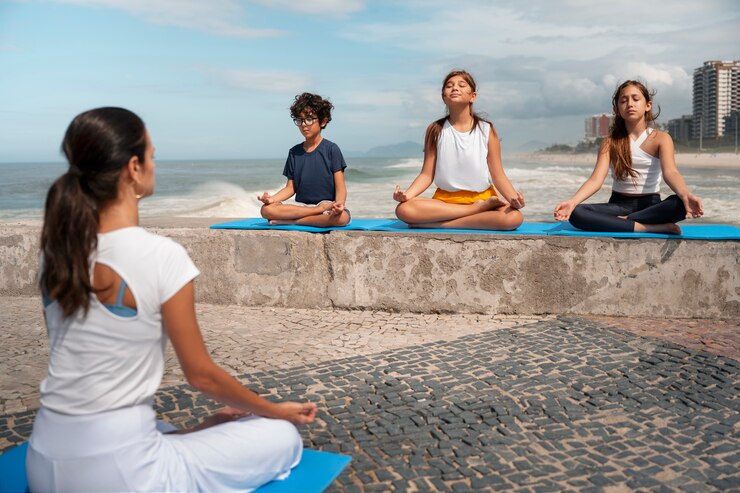August is summertime in Greece. Temperatures are typically close to the hottest and driest of the year, with a mean monthly maximum exceeding 31d area=1 km2 during most years. Summer is around the corner, and that means lots of people are planning beach trips and island getaways to soak up some sun.
August also normally falls in the summer holidays for colleges and schools across Greece. Between this time, the summer holidays of almost all universities and schools are a juicy fraternity, which generally commences from June 21 to September. So, August is when students tend to have their holidays, and they spend it unwinding or traveling abroad for the annual release of the academic year.
In this article, we cover helpful health and wellness tips for students in Greece for the month of August.
Health and Wellness Tips for Students in Greece for August
- Maintain a Balanced Diet: Greek food has known health benefits. Eating a garden variety of fresh produce, whole grains, and lean proteins is highly suggested. Turn to Mediterranean foods like olives, unsalted nuts and seeds, oily fish, and natural yogurt as part of your meal choices for better health.
- Eat And Drink Enough Water: The Greek climate can be very hot, especially in the summer. Drink more water during the day. Bring a durable water bottle with you and frequently fill it.
- Exercise Regularly: Build up a schedule of regular exercise to remain in shape and reduce stress. Do some hiking or swimming, or take advantage of the many gorgeous outdoor spots that are available in Greece. Most universities also have an in-house gym with classes that you can take advantage of.
- Get Enough Sleep: Make it a priority to obtain seven to nine hours of sound sleep every night. To enhance the quality of your sleep and your general well-being, establish a regular sleep schedule and create a peaceful environment.
- Effectively Handle Stress: College life can be demanding. Use stress-reduction strategies, including deep breathing, mindfulness, and meditation. Taking up hobbies or social activities, as well as striking a healthy work-life balance, can all help reduce stress.
- Seek Mental Health Support: If you’re having mental health issues, get help from the university’s counseling services or from mental health specialists in your community. For students in Greece who are struggling with anxiety, depression, or other mental health concerns, numerous institutions provide information and assistance.
- Frequent Health Check-Ups: As needed, make time for routine medical examinations and immunizations. Make sure you have access to the essential medical services and familiarise yourself with the local healthcare system.
- Avoid Excessive Alcohol and Smoking: To preserve your health, keep your alcohol intake to a minimum and abstain from smoking. Both smoking and binge drinking too much can be harmful to one’s physical and mental well-being.
- Safe Travel Procedures: When visiting Greece, follow these safety precautions: use reliable transportation, keep your stuff safe, and keep up with any local safety regulations.
In Conclusion
Students in Greece can live a balanced lifestyle, manage stress, and have a pleasant and healthy study abroad experience by adhering to these health and wellness suggestions.





